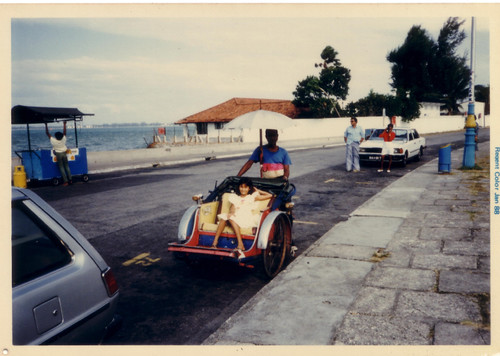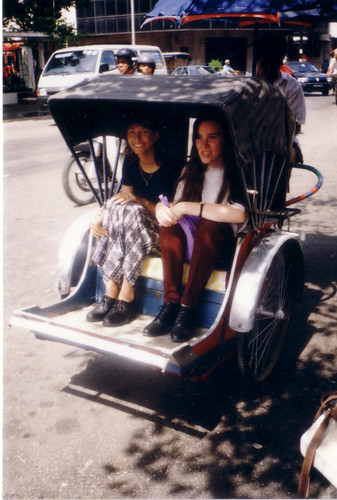At my previous job I had a colleague, Faridah, who grew up in a small village called Kampong Nyak Puteh on Penang Island on the West coast of Peninsular Malaysia. Penang is a vibrant multicultural place that has a long history of immigration from many corners of the globe. It is now a popular tourist destination and has also become quite industrialized which has lead to massive changes in the lifestyle of the local people.
"The Rickshaw is called bacha in bahasa but in Penang we called it Langcha I think its Chinese origin"

Little girl in Langcha Kampong Nyak Puteh 1980.

Langcha by the sea Penang 1980's

Yasmin and friend ride the Langcha in Penang 1990's
Nyak Puteh is no longer there it was re-claimed by the Government at the end of a 99yrs lease. All the land previously occupied by Faridah's Family was lost.The village which was once a simple and pleasant place to live, is now gone.
There was a stream that flowed with clean water; people were accustomed to sharing the fruit from several neighborhood fruit trees and Rickshaws were a common and much valued form of public transport. Unfortunately the village was replaced by blocks of flats designed for high density living. Faridah tells me:
"Now there is no more fruit trees or beautiful river eveyone has a small courtyard for themselves and that is all"
Faridah says that the Langcha riders were once well respected in her village but with industrialization and modernization they do not have such a significant role in the daily lives of those who live there now.